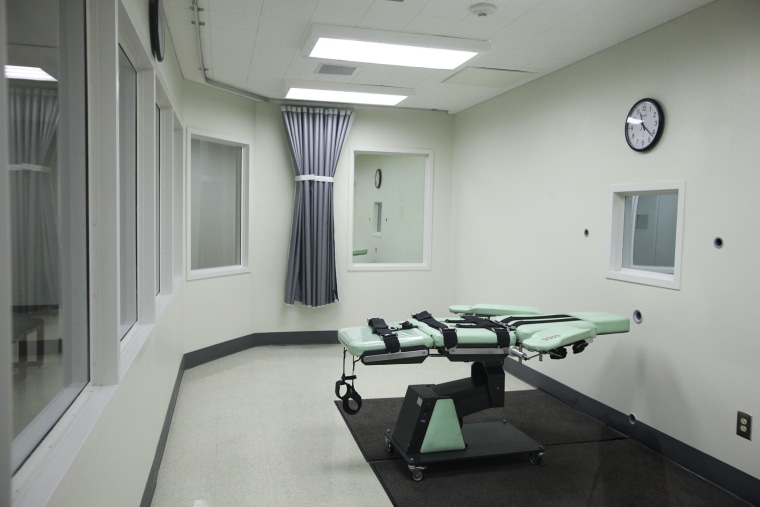A federal judge in California has ruled that the state's death penalty is unconstitutional.
"[F]or most, systemic delay has made their execution so unlikely that the death sentence carefully and deliberately imposed by the jury has been quietly transformed into one no rational jury or legislature could ever impose: life in prison, with the remote possibility of death," wrote Federal Judge Cormac J. Carney of death row inmates in California. "As for the random few for whom execution does become a reality, they will have languished for so long on Death Row that their execution will serve no retributive or deterrent purpose and will be arbitrary."
The case involves a California death row inmate, Ernest Dewayne Jones, who was sentenced to death for raping and killing his girlfriend's mother in 1995. Jones and nearly half of the 750 inmates on death row in California have been awaiting execution for more than 19 years, only 13 of the 900 inmates sentenced to death since 1978 have been put to death by the state. Since 1972, the Supreme Court has repeatedly upheld the constitutionality of the death penalty, but it has occasionally ruled that the death penalty can violate the Eighth Amendment's prohibition on cruel and unusual punishment depending on how it is applied. The high court has also narrowed its use, forbidding it in the case of minors or individuals convicted of crimes other than murder.
Carney's determination that the death penalty in California is unconstitutional as applied is based on the often interminable delay between sentencing and execution. As a result, Carney concludes, the system does not serve society's interest in deterring crime or seeing it properly punished.
"When an individual is condemned to death in California, the sentence carries with it an implicit promise from the State that it will actually be carried out. That promise is made to the citizens of the State, who are investing significant resources in furtherance of a punishment that they believe is necessary to achieving justice. It is made to jurors who, in exercise of their civic responsibility, are asked to hear about and see evidence of undeniably horrific crimes, and then participate in the agonizing deliberations over whether the perpetrators of those horrific crimes should be put to death. It is made to victims and their loved ones, for whom just punishment might provide some semblance of moral and emotional closure from an otherwise unimaginable loss. And it is made to the hundreds of individuals on Death Row, as a statement their crimes are so heinous they have forfeited their right to life.But for too long now, the promise has been an empty one."
The long delays between sentencing and execution, McCarthy wrote, have resulted in a system "that serves no penological purpose. Such a system is unconstitutional."
Carney was nominated to the federal bench in 2002 by President George W. Bush.
